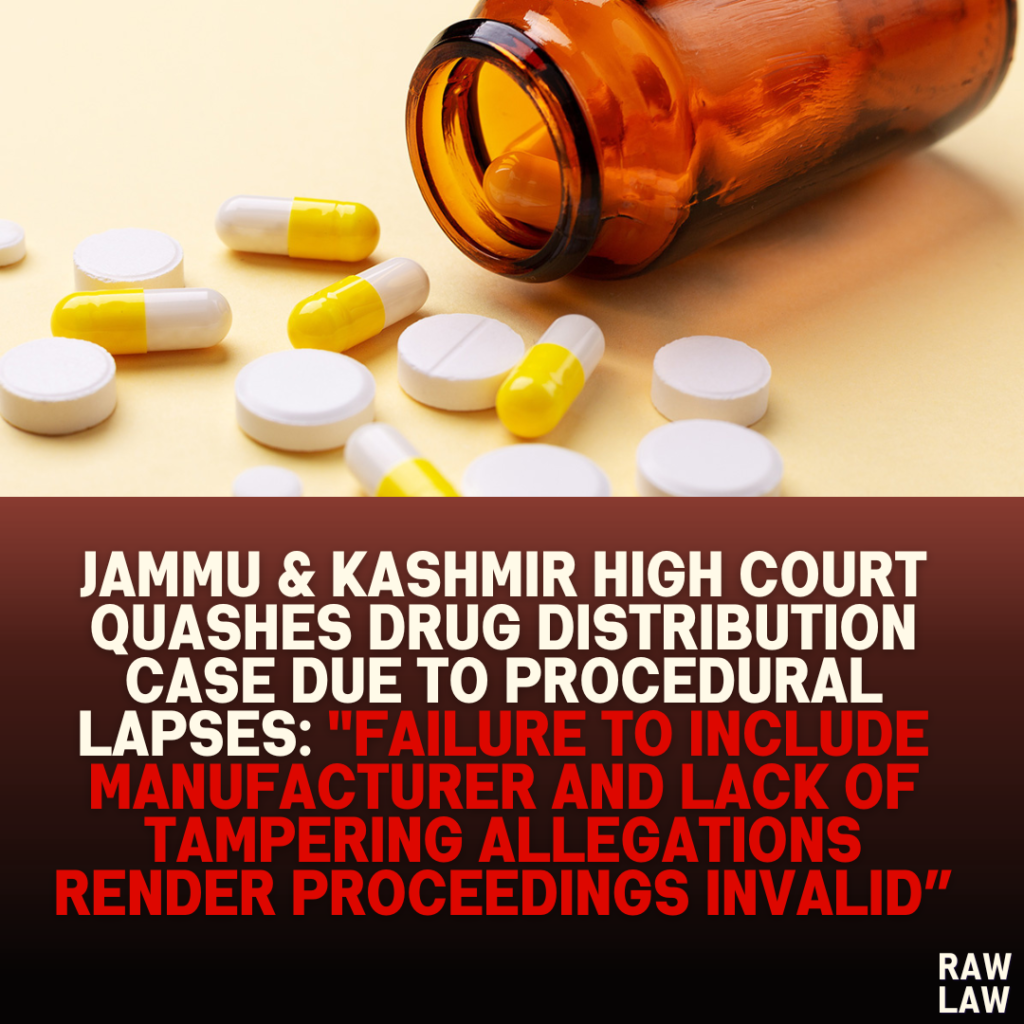Court’s Decision:
The Jammu & Kashmir and Ladakh High Court quashed the proceedings initiated under the Drugs and Cosmetics Act, 1940, against the petitioner. The Court found that the grounds raised were identical to those in a previous case where similar proceedings were quashed by a coordinate Bench.
Facts:
The petitioner challenged the proceedings initiated under Section 18(a)(i) read with Section 27(d) of the Drugs and Cosmetics Act, 1940. The complaint alleged that the petitioner distributed “not of standard quality drug.” However, the petitioner argued that the company from which the drug was acquired was not made an accused, and there was no allegation of tampering with the sealed drug. Moreover, a previous judgment had quashed similar proceedings on identical grounds.
Issues:
Whether the absence of the company as an accused invalidated the proceedings.
Whether the petitioner could be held liable without allegations of tampering with the drug.
Petitioner’s Arguments:
The petitioner argued that, in accordance with Section 19(3) of the Drugs and Cosmetics Act, 1940, the proceedings could not continue since the drug was acquired from a licensed manufacturer and no tampering with the drug was alleged. Additionally, the petitioner relied on a previous judgment that quashed similar proceedings.
Respondent’s Arguments:
The respondent maintained that the petitioner had distributed a “not of standard quality drug” and asserted that the petition was without merit.
Analysis of the Law:
The court examined the provisions of the Drugs and Cosmetics Act, 1940, particularly Section 19(3), which protects individuals who procure drugs from licensed manufacturers unless there is evidence of tampering or other wrongdoing. The court also noted the procedural lapses in prosecutions under the Act.
Precedent Analysis:
The court referred to a previous judgment by a coordinate Bench in a similar case, where the proceedings against other accused in the same complaint were quashed based on identical grounds.
Court’s Reasoning:
The court concluded that the petitioner’s case was covered by the earlier judgment, and the proceedings against the petitioner could not continue due to the same deficiencies. The court also expressed concern over the frequent failure of prosecutions under the Drugs and Cosmetics Act due to procedural defects.
Conclusion:
The court quashed the proceedings against the petitioner, citing identical grounds as those in a previous case. The court also urged authorities to address procedural deficiencies in future prosecutions under the Act.
Implications:
The ruling underscores the importance of following proper procedures when initiating prosecutions under the Drugs and Cosmetics Act. The court highlighted the need for training of officers to ensure compliance with the technical requirements of the law, preventing cases from being quashed at the initial stages due to procedural defects.




Pingback: Supreme Court Confirms; Agreements for Sale Involving Transfer of Possession Are Conveyance Instruments Subject to Stamp Duty Payment - Raw Law